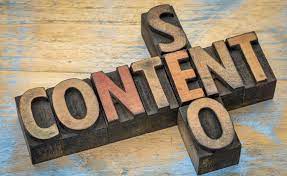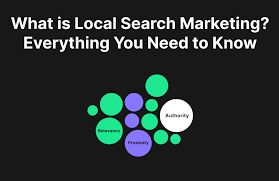The Importance of SEO Optimized Content
Search Engine Optimization (SEO) is crucial for any website looking to increase its online visibility and attract more organic traffic. One key aspect of SEO is creating optimized content that not only engages readers but also ranks well in search engine results.
What is SEO Optimized Content?
SEO optimized content refers to web pages, blog posts, articles, and other digital content that are strategically crafted to rank high in search engine results pages (SERPs). This involves using relevant keywords, creating high-quality and valuable content, optimizing meta tags and descriptions, and following best practices for on-page SEO.
The Benefits of SEO Optimized Content
There are several benefits to creating SEO optimized content:
- Improved Search Engine Rankings: By incorporating relevant keywords and following SEO best practices, your content is more likely to rank higher in search engine results, making it easier for users to find your website.
- Increased Organic Traffic: Higher search engine rankings lead to increased organic traffic as more users click on your website in search results.
- Better User Experience: Well-optimized content is not only appealing to search engines but also provides value to readers, resulting in a better user experience and increased engagement.
- Higher Conversion Rates: When your content ranks well in search results and resonates with your target audience, it can lead to higher conversion rates and ultimately more sales or leads.
Tips for Creating SEO Optimized Content
To create SEO optimized content that drives results, consider the following tips:
- Keyword Research: Conduct thorough keyword research to identify relevant keywords that your target audience is searching for.
- Quality Content: Focus on creating high-quality, informative, and engaging content that addresses the needs and interests of your target audience.
- Title Tags and Meta Descriptions: Optimize title tags and meta descriptions with relevant keywords to improve click-through rates from search results.
- Internal Linking: Include internal links within your content to improve navigation and help search engines understand the structure of your website.
- Maintain Freshness: Regularly update and refresh your content to keep it current and relevant in the eyes of both users and search engines.
In Conclusion
In today’s competitive online landscape, having SEO optimized content is essential for driving organic traffic, improving search engine rankings, and enhancing user experience. By implementing best practices for creating optimized content, you can position your website for success in the digital world.
7 Essential Tips for Crafting SEO-Optimized Content That Engages and Ranks
- 1. Research relevant keywords to target in your content.
- 2. Create high-quality, informative content that provides value to readers.
- 3. Use headings and subheadings to organize your content for better readability.
- 4. Optimize meta tags, including title tags and meta descriptions, with targeted keywords.
- 5. Include internal and external links to authoritative sources for credibility and SEO benefit.
- 6. Optimize images with descriptive filenames and alt text for improved accessibility and SEO.
- 7. Regularly update and refresh your content to keep it relevant and maintain search engine rankings.
1. Research relevant keywords to target in your content.
Researching relevant keywords to target in your content is a crucial step in creating SEO optimized content. By identifying the specific keywords that your target audience is searching for, you can tailor your content to better align with their interests and needs. Incorporating these keywords strategically throughout your content can help improve your search engine rankings and increase the visibility of your website in search results. Effective keyword research lays the foundation for a successful SEO strategy and ensures that your content resonates with the right audience.
2. Create high-quality, informative content that provides value to readers.
Creating high-quality, informative content that provides value to readers is a fundamental aspect of SEO optimization. By offering valuable information that addresses the needs and interests of your target audience, you not only enhance user experience but also establish credibility and authority in your industry. Search engines prioritize content that is relevant and engaging, making it more likely to rank well in search results. Ultimately, focusing on quality content not only benefits your SEO efforts but also builds trust with your audience and encourages them to return for more valuable insights.
3. Use headings and subheadings to organize your content for better readability.
Using headings and subheadings is a crucial tip for optimizing your content for SEO. By structuring your content with clear headings and subheadings, you not only improve the readability of your text but also make it easier for search engines to understand the hierarchy and relevance of your information. This organization helps both users and search engines navigate your content more efficiently, leading to a better user experience and potentially higher search engine rankings.
4. Optimize meta tags, including title tags and meta descriptions, with targeted keywords.
To enhance the SEO performance of your content, it is crucial to optimize meta tags such as title tags and meta descriptions with specific keywords that are relevant to your content and target audience. By incorporating targeted keywords into these elements, you can improve the visibility of your web pages in search engine results and attract more organic traffic. Effective optimization of meta tags not only helps search engines understand the context of your content but also entices users to click through to your website by providing a clear and compelling preview of what they can expect.
5. Include internal and external links to authoritative sources for credibility and SEO benefit.
Including internal and external links to authoritative sources in your SEO optimized content is essential for establishing credibility and gaining SEO benefits. By linking to reputable sources within your own website (internal links), you not only provide additional value to your readers but also help search engines understand the context and relevance of your content. External links to authoritative websites not only enhance the credibility of your content but also signal to search engines that your content is well-researched and trustworthy, ultimately boosting your SEO rankings. Striking a balance between internal and external linking can significantly improve the overall quality and effectiveness of your SEO strategy.
6. Optimize images with descriptive filenames and alt text for improved accessibility and SEO.
Optimizing images with descriptive filenames and alt text is a crucial aspect of creating SEO optimized content. By using relevant keywords in image filenames and alt text, you not only improve the accessibility of your content for visually impaired users but also enhance your website’s SEO performance. Search engines rely on this information to understand the context of images on your website, helping them rank your content higher in search results. This simple yet effective tip can make a significant impact on both user experience and search engine visibility.
7. Regularly update and refresh your content to keep it relevant and maintain search engine rankings.
Regularly updating and refreshing your content is a crucial aspect of maintaining SEO optimized content. By keeping your content current and relevant, you signal to search engines that your website is active and valuable to users. This practice not only helps in retaining search engine rankings but also ensures that your audience receives up-to-date information, leading to improved user experience and engagement. Consistently updating your content demonstrates your commitment to providing quality information, which can ultimately contribute to higher visibility and better performance in search results.




